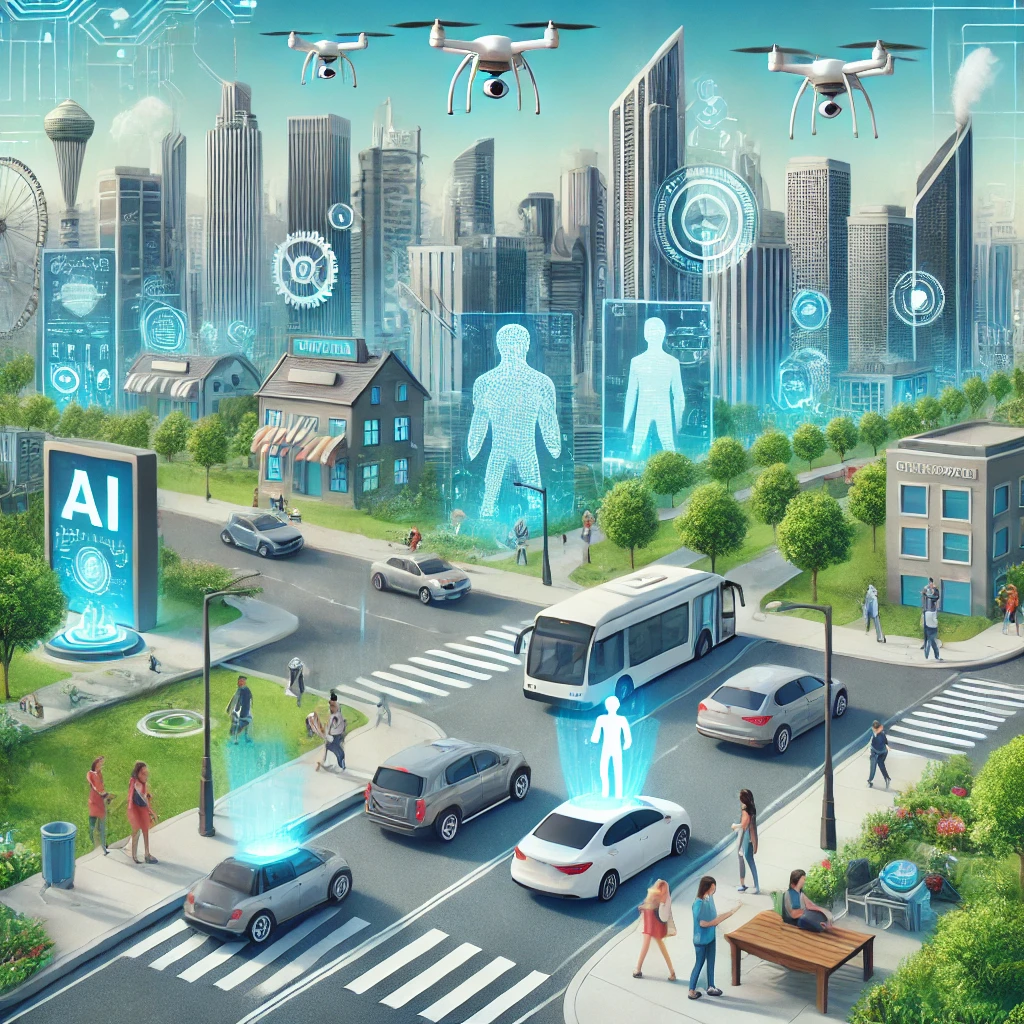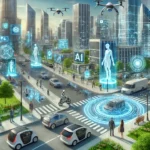Artificial Intelligence (AI) is no longer a concept confined to science fiction; it is a pivotal force driving change across various facets of our lives. As AI technologies continue to advance, their impact on society, industries, and our daily routines becomes increasingly profound. This article delves into the rise of AI, exploring its implications, applications, and the transformative power it holds for our world.
Understanding Artificial Intelligence
Artificial Intelligence, often abbreviated as AI, refers to the simulation of human intelligence processes by machines, especially computer systems. These processes include learning (acquiring information and rules for using it), reasoning (using rules to reach approximate or definite conclusions), and self-correction. Core AI technologies encompass machine learning, natural language processing, robotics, and neural networks.
Historical Context of AI Development
AI’s journey began in the mid-20th century with early theories and experiments by visionaries like Alan Turing and John McCarthy. Turing’s pioneering work laid the groundwork for computational theories, while McCarthy coined the term “Artificial Intelligence” in 1956. Over the decades, AI has evolved through periods of both innovation and stagnation, commonly referred to as “AI winters” and “AI springs.”
AI in Healthcare
One of the most impactful areas of AI application is healthcare. AI systems assist in diagnosing diseases, predicting patient outcomes, and personalizing treatment plans. For instance, AI algorithms can analyze medical images with remarkable accuracy, identifying conditions such as cancers at early stages. Additionally, AI-powered chatbots and virtual health assistants provide round-the-clock support, enhancing patient engagement and access to healthcare services .
AI in Education
The educational sector is experiencing a transformation with the integration of AI. Intelligent tutoring systems and personalized learning platforms tailor educational content to individual student needs, fostering a more engaging and effective learning experience. AI also aids educators by automating administrative tasks, allowing them to focus more on teaching and student interaction .
AI in Business and Finance
In the business and financial sectors, AI optimizes operations, enhances decision-making, and drives innovation. AI algorithms analyze vast datasets to predict market trends, automate trading, and manage risk. Customer service is also revolutionized through AI-powered chatbots that handle inquiries and provide support, improving customer satisfaction and operational efficiency .
AI in Transportation
Transportation is undergoing a significant shift with the rise of AI. Autonomous vehicles, powered by AI, promise to reduce accidents, improve traffic management, and offer greater accessibility. AI systems also optimize logistics and supply chain operations, ensuring timely and cost-effective delivery of goods and services .
AI in Entertainment and Media
The entertainment and media industries are leveraging AI to create more immersive and personalized experiences. AI algorithms recommend content based on user preferences, enhancing viewer engagement. In media production, AI assists in editing, special effects, and even generating creative content, pushing the boundaries of storytelling and production quality .
Ethical Considerations and Challenges
Despite the many benefits, the rise of AI brings forth ethical considerations and challenges. Issues such as data privacy, algorithmic bias, and the potential for job displacement require careful deliberation and regulation. Ensuring that AI technologies are developed and deployed responsibly is paramount to addressing these concerns and maximizing their positive impact .
The Future of AI
The future of AI holds immense potential, with ongoing research and development paving the way for even more sophisticated and integrated applications. From enhancing human capabilities to solving complex global challenges, AI is set to play a central role in shaping the future. As we continue to explore and harness its possibilities, the need for interdisciplinary collaboration and ethical foresight becomes increasingly crucial .
FAQs
What is Artificial Intelligence?
Artificial Intelligence (AI) refers to the simulation of human intelligence in machines designed to think and act like humans. These systems are capable of learning, reasoning, and self-correction.
How is AI used in healthcare?
AI is used in healthcare to diagnose diseases, predict patient outcomes, personalize treatment plans, and provide round-the-clock support through chatbots and virtual health assistants.
What are some examples of AI in education?
AI in education includes intelligent tutoring systems, personalized learning platforms, and automated administrative tasks, which help tailor educational content and improve the overall learning experience.
How does AI impact business and finance?
In business and finance, AI optimizes operations, enhances decision-making, predicts market trends, automates trading, and improves customer service through AI-powered chatbots.
What are the ethical considerations of AI?
Ethical considerations of AI include data privacy, algorithmic bias, and potential job displacement. Responsible development and deployment are crucial to addressing these concerns.
What is the future of AI?
The future of AI involves ongoing research and development, leading to more sophisticated applications that enhance human capabilities and address complex global challenges. Interdisciplinary collaboration and ethical foresight will be key to realizing AI’s full potential.
Conclusion
The rise of AI is undeniably transforming our world, driving innovation and efficiency across various sectors. As AI technologies continue to evolve, their impact will only become more pronounced, offering both opportunities and challenges. By embracing AI with a focus on ethical considerations and responsible development, we can harness its power to create a better, more advanced world.
Artificial Intelligence is not just a technological advancement; it’s a paradigm shift reshaping our world. From healthcare to education, business to entertainment, AI’s influence is pervasive, promising a future where technology and human ingenuity coalesce to solve complex problems and elevate our daily lives. As we navigate this transformative journey, understanding AI’s potential and challenges will be crucial in leveraging its benefits responsibly and ethically.
Contents:
Sources:
- AI and Ethics: Addressing the Challenges – Harvard Business Review
- The Future of AI: Opportunities and Risks – MIT Technology Review
- AI in Healthcare: Transforming Patient Care – Mayo Clinic
- AI in Education: Enhancing Learning – EdTech Magazine
- AI in Business: Revolutionizing Operations – Forbes

